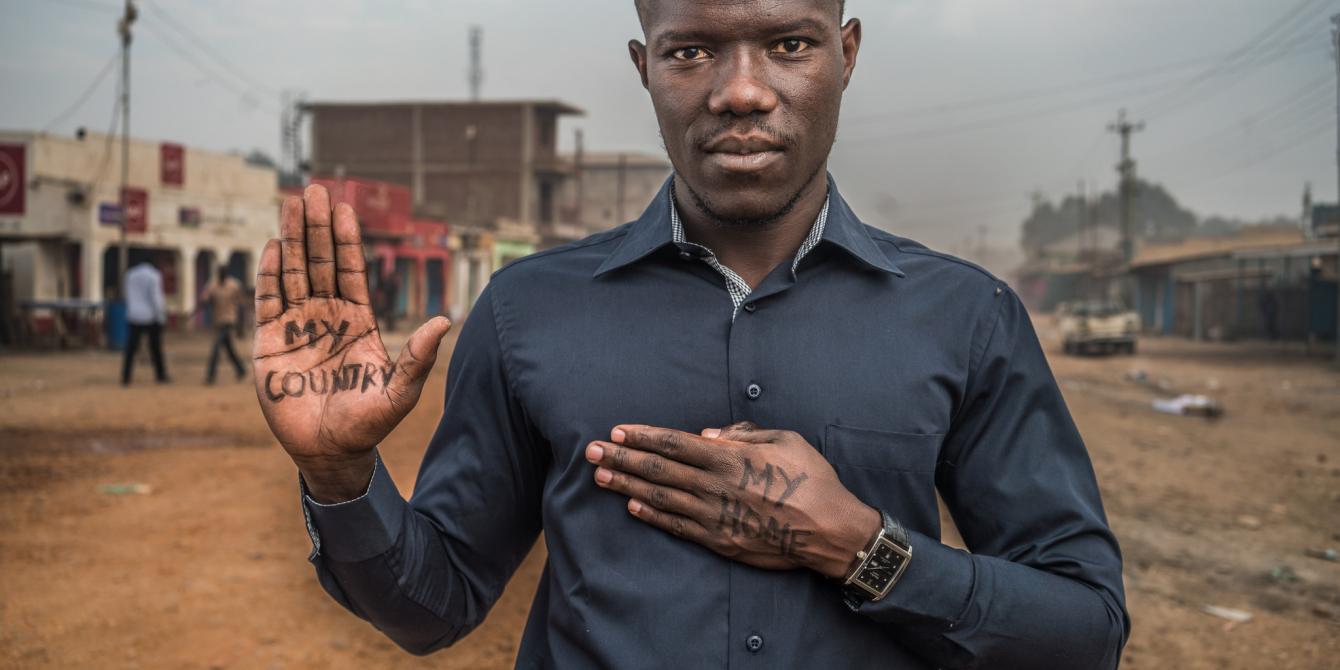Refugees as peace builders

Recently, I had the opportunity to visit Kampala in Uganda, home to 785,000 people who were forced to flee their homes due to the brutal conflict in South Sudan. During my visit, I met Simon Marot, who fled South Sudan as a child to seek safety in Uganda. Simon expressed what many refugees feel about the South Sudan peace agreement signed last September: that peace needs more than signatures on paper. “Peace is not the paperwork, the treaties. Peace is me with myself, me with my neighbor,” he said.
Simon is one of the 2.2 million people who have sought protection in neighboring countries since the South Sudan war erupted on 15 December 2015. Five years on since the start of the conflict, the ones who have lost so much – South Sudanese refugees – are the ones laying the groundwork for peace.
Simon runs the African Youth Action Network (AYAN), a refugee-led peace-building organization that works to advance, promote, and protect the rights of refugee youth in Uganda. He believes that peacebuilding is needed at the local level in order for national peace agreements to work. He told me that “peace is better when it’s home-grown and bottom-up.” By bringing young refugees of different ethnicities together, AYAN is working to repair relationships among South Sudanese, and supporting young refugees to be advocates for peace. Simon also highlighted the vital role of women and girls in building peace in South Sudan and called for more support for women refugees to lead to local peace-building activities.
During my visit, I also met with Anataban (Arabic for “We are tired”), an inspirational South Sudanese creative youth movement whose members cross East Africa are using art, music, street theatre, murals, and poetry to promote peace.
Art for Peace
Patrick Godi, leader of Anataban’s Kampala chapter is keenly aware of the role youth have played in perpetuating the South Sudan conflict.
“This has not been limited to the borders of South Sudan but is also the case in refugee camps in the region,” he said. Anataban is actively engaging with young refugees, “ utilizing the soft power of arts and culture to shape a peaceful, united and prosperous country.”
The Anataban “artivists” are also designing ways to share information about South Sudan’s peace process among refugees. They emphasized that refugees could play an important role in supporting the implementation of the new peace agreement, but that in order to do this, they need to understand the peace process and the agreement’s content.
Between 11 and 15 December, South Sudanese civil society organizations, refugees, INGOs, and UN agencies will come together to acknowledge the many ways that refugee-led initiatives like AYAN and Anataban are working to bring an end to violence and promote peace. Using the hashtag #SSRefugees4Peace, they will share stories, videos and first-person accounts about the efforts of refugees to build peace among themselves and promote peace within South Sudan, and about refugees’ hopes and aspirations for a peaceful South Sudan.
Uganda in the Comprehensive Refugee Response Framework
Uganda is a global leader in applying the Comprehensive Refugee Response Framework on refugees, which in fact recommends that in order to create conditions to help refugees return in safety and dignity, States, UN organizations and partners should “support efforts to foster reconciliation and dialogue, particularly with refugee communities” and “facilitate the participation of refugees, including women, in peace and reconciliation processes.”
Our hope is that states, UN Organizations and partners will step up to support refugees’ efforts.
For more information on the organizations mentioned in this blog, please visit ayanafrica.org and anataban.org.
About the Author
Charlotte Stemmer is Oxfam International’s representative in Geneva where she is responsible for liaison with Member States to the United Nations and to influence international humanitarian processes such as the Global Compact on Refugees. For the last two years, she has been closely following the discussions and decisions of Member States to the United Nations on how to ensure equitable sharing of the responsibility for hosting and supporting the world’s refugees.
In June 2018, four South Sudanese refugees were killed in inter-ethnic fighting that started as an argument during a football match in Rhino refugee settlement, northern Uganda. In response, the Youth Social Advocacy Team, a refugee led community-based organizations trained SouthSudanese youth to be ambassadors of peace in their communities, with the hope that these efforts will ultimately lead to peace in their own country.

 Follow us on Facebook
Follow us on Facebook Follow us on Twitter
Follow us on Twitter